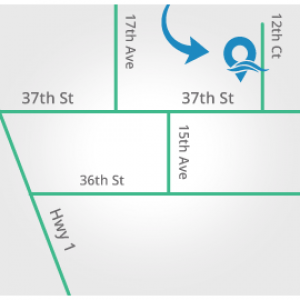One of the most common injuries of the lower back is a herniated disc. While the herniation itself is usually sudden, it is often the result of chronic wear without proper bulging disc treatment. As the old proverb goes, “an ounce of prevention is worth a pound of cure” which is why today we will discuss how to treat a bulging disc in order to prevent herniation.
How does a Bulging Disc Occur?
As you may already know, the vertebrae of the spine are separated by a number of gelatinous discs. These discs allow the spine some mobility while also cushioning each vertebra. Cushioning is vital, as it allows the spine to remain healthy when facing compression
Issues arise when one of the intervertebral discs begins to bulge from its original place. The outer membrane of these discs can begin to weaken, and if it loses too much of its initial integrity, the inner portion of the disc can push out through the membrane, resulting in a bulging disc.
While the outer membrane can weaken due to normal aging and everyday wear and tear, there are a number of factors which can accelerate this process. These factors include:
- Improper posture
- Repetitive lifting
- Injury
- Obesity
All of the above can increase the amount of pressure on your spine, and as such, can also hasten the degenerative process.
While the occurrence of a bulging disc is less than ideal, bulging disc treatment becomes vital if the patient is to avoid a full-blown herniation.
Bulging Disc Treatment
Even if a bulging disc occurs, there is still hope in preventing the condition from worsening. There are a number of things a patient can do in order to help the bulging disc heal.
Upon the initial injury, we highly advised that the patient rest for a day or two. Often times the injured area will become inflamed, and further movement may exacerbate the issue. Allowing the body a bit of time to heal itself can be highly beneficial.
In addition to rest, over the counter pain medication can be helpful in relieving the associated pain. Medication should always be used as a last resort, and you should consult a medical professional before starting any medication.
After the initial onset, sufferers of a bulging disc may find it helpful to engage in exercises that will stretch and strengthen the muscles near the site of injury. Stretching the muscles of the back may help decompress the spine. Such decompression can allow the disc the room to resume its normal position.
In addition to stretching, bulging disc treatment may involve strengthening the back. Strong muscles around the site of injury can help the spine stabilize, preventing the bulging disc from further pressure.
While exercise can certainly have its benefits in a bulging disc treatment plan, it should be done with caution, as any incorrect or aggressive movement may worsen the injury.
The Takeaway
Bulging disc treatment is incredibly important if the patient is to avoid worsening the condition to the point of herniation. Through a well-thought-out combination of exercise, rest, and in some cases, medication, sufferers of a bulging disc can begin to heal without further complications.
That being, it is essential to your recovery that you seek the help of a knowledgeable medical professional before attempting treat a bulging disc. This is a delicate process and requires careful attention to detail if you are to avoid a herniated disc.
If you or a loved one are suffering from a bulging disc, reach out and schedule an appointment. Dr. John Atwater, our spine specialist, would be happy to help you in your recovery.



